Academics Adminstration
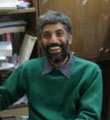 |
प्रो. नारायणन डी कुरुर संकायाध्यक्ष, शैक्षिक भारतीय प्रौद्योगिकी संस्थान दिल्ली फोन.:+91-11-2659 1708(का.), ई-मेल:deanacad[at]admin.iitd.ac.in |
 |
प्रो. एस. चटर्जी सह संकायाध्यक्ष, पाठ्यचर्या भारतीय प्रौद्योगिकी संस्थान दिल्ली फोन.:+91-11-2659 1708(का.) ई-मेल:adcur[at]admin.iitd.ac.in |
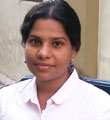 |
प्रो. सी. टी. धन्या सह संकायाध्यक्ष, स्नातकोत्तर अनुसंधान भारतीय प्रौद्योगिकी संस्थान दिल्ली फोन.:+91-11-26591708 (का.) ई-मेल:adres[at]admin.iitd.ac.in |
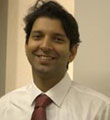 |
प्रो. सुबोध वी शर्मा सह संकायाध्यक्ष, अकादमिक आउटरीच और नई पहल भारतीय प्रौद्योगिकी संस्थान दिल्ली फोन.:+91-11-2659 ----(का.) ई-मेल:--[at]admin.iitd.ac.in |
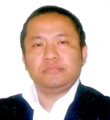 |
एलन वी सीनाटे डिप्टी कुलसचिव (स्नातकोत्तर अध्ययन एवं अनुसंधान) भारतीय प्रौद्योगिकी संस्थान, दिल्ली हौज़ खास, नई दिल्ली-110 016, भारत दूरभाषः -91-11-2659 1737 (कार्यालय) ई-मेलः drpgsr@admin.iitd.ac.in |
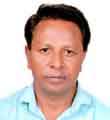 |
श्री सुरेश कुमार गौहर सहायक कुलसचिव (स्नातक पूर्व अध्ययन) भारतीय प्रौद्योगिकी संस्थान दिल्ली हौज़ खास, नई दिल्ली-110 016, भारत रभाषः - 91-11-2659 1718 (कार्यालय) ई-मेलः arugs@admin.iitd.ac.inbr> |
Research Areas in Various Departments/Centres/Schools
-
Environmental Engineering
:
Urban air quality management; indoor air pollution; water and waste water treatment; (Nano particles, Antibiotics) Emerging water contaminants; urban water Management; Non-point source of Pollution; Membrane Process; Modeling, simulation and optimization of Environmental systems; Environmental Impact Assessment; Human Health Risk Assessment; solid waste management; incineration; circulating fluidized bed operations; Landfill Management; Carbon sequesteration; sustainable development (Urban cities/growth centres); Environmental Risk Analysis, GIS and Remote Sensing Applications for Environmental Management. Aerosol characterization, local air quality, climate change and health impact.
-
Geotechnical Engineering
:
Soil mechanics; rock mechanics; rock engineering; foundation engineering; scope stability and dams; ground improvement: geosynthetics; reinforced soil; geoenvironmental engineering; offshore geotechnology; underground structures; constitutive modeling; ash ponds and ash utilization; landfills; expansive soils; geophysical methods; engineering geology; soil dynamics and earthquake geotechnics; Ground response, Site Specific Studies, Hazard analysis, seismic microzonation; geotechnology for tracks and pavements; computational methods. Risk and reliability in Geotechnical and Geoenvironmental Engineering; Blast and impact analysis; Energy Geotechnology; Non-linear soil-pile interaction; pile dynamics, Dynamic behavior of tunnels and slopes, Landslides and man movement.
-
Structural Engineering
:
Analysis and design of structures; tall buildings; bridges; earthquake engineering; wind engineering; offshore structures; masonry, RCC and steel structures; construction Management; Construction Technology; concrete Technology; structural dynamics; structural control; constitutive modeling; computational methods; modeling of damage, plasticity and creep of concrete; durability of concrete; rebar corrosion; modeling of cements; supplementary cementitious materials; composites; high performance concrete; self compacting concrete; financial analysis; contract administration, quantitative methods in construction management; structural health monitoring; smart materials and structures; tensigrity structures; biomechanics; engineered bamboo structures; artificial intelligenc; damage assessment and strengthening; microstructural modeling; mechanics of composite materials; non-destrrctive testing and evaluation using ultrasound; subsurface imaging using ultrasonic wave propagation; energy harvesting from structures.
-
Transportation Engineering
:
Transport planning; Transport policy; Transportation Safety; Construction work zone safety; Heterogeneous traffic flow modeling; Traffic safety and capacity of hill roads; Mass transportation planning; Fuzzy systems; Urban transport infrastructure planning and design; Expert systems in transportation engineering; Environmental impact assessment; Non-motorized transport planning; Modeling of pedestrian behavior; Geometric design of transportation infrastructure; Characterization of pavement materials; Pavement design (flexible and rigid); Damage modeling of bitumen and bituminous mixtures; Constitutive modeling of pavement materials; Recycling of civil infrastructure materials; Rheology of asphaltic materials; Condition assessment of highway infrastructure; Pavement management systems; Highway engineering; Airport infrastructure.
-
Water Resources Engineering
:
Hydrology in natural and urban environment; Hydrological modeling and simulation; Stochastic processes; Data mining in hydrology; Flood forecasting and modeling; Snow dynamics; Hydroclimatology; Climate change effects in water resources; Watershed modeling; Large river basin modeling; water resources systems, planning and management; Water allocation; Water resources conflicts; Irrigation management; Flow through porous media; Groundwater modeling; Ground water contamination; Contaminant transport modeling; Leachate pollution; Bioremediation; River water quality modeling; Environmental impact assessment of water resources projects; Surface and subsurface drainage; Hydraulic structures; Sediment transport; Application of numerical methods, CAD, CFD, AEM, GIS, and Remote sensing in Water Resources Engineering.
